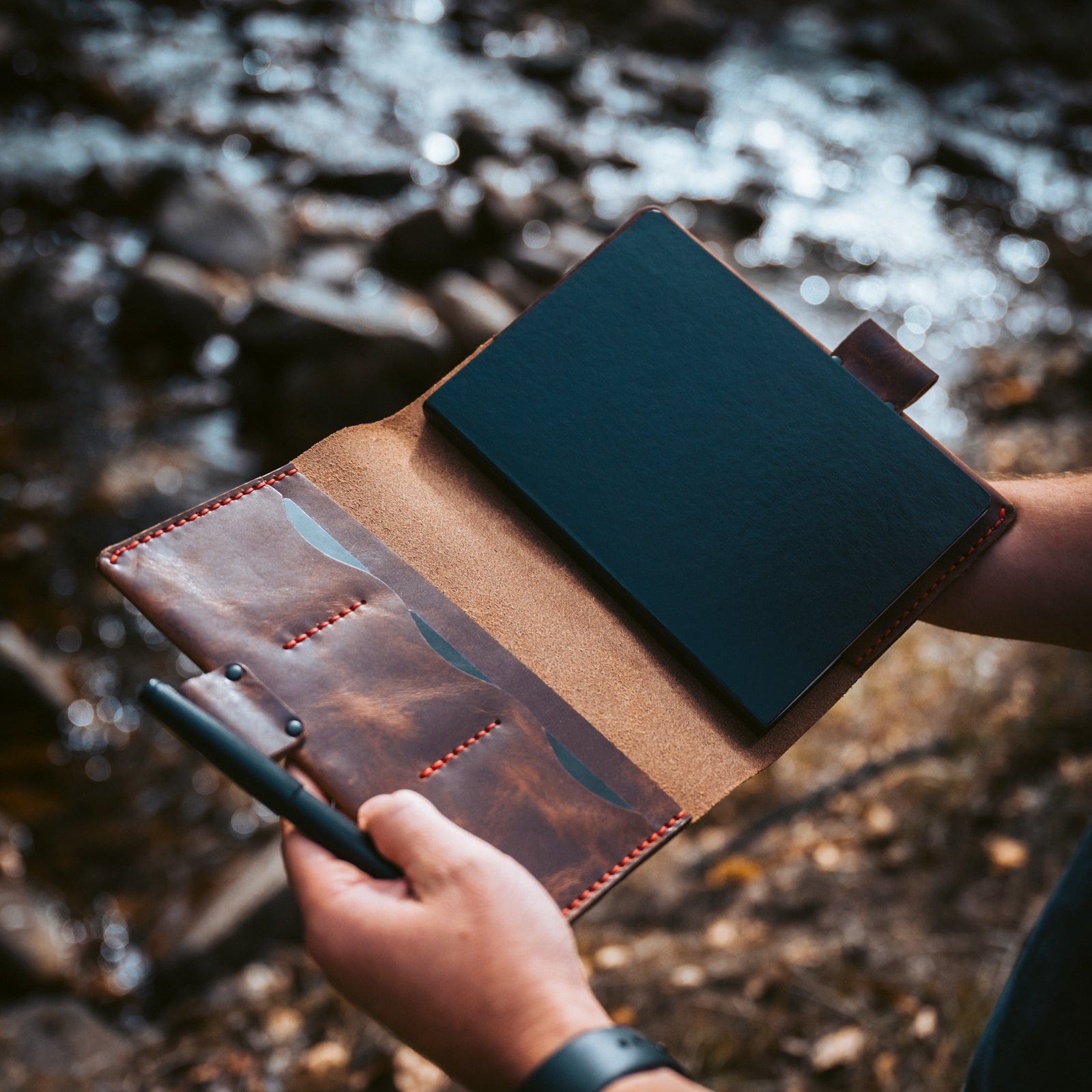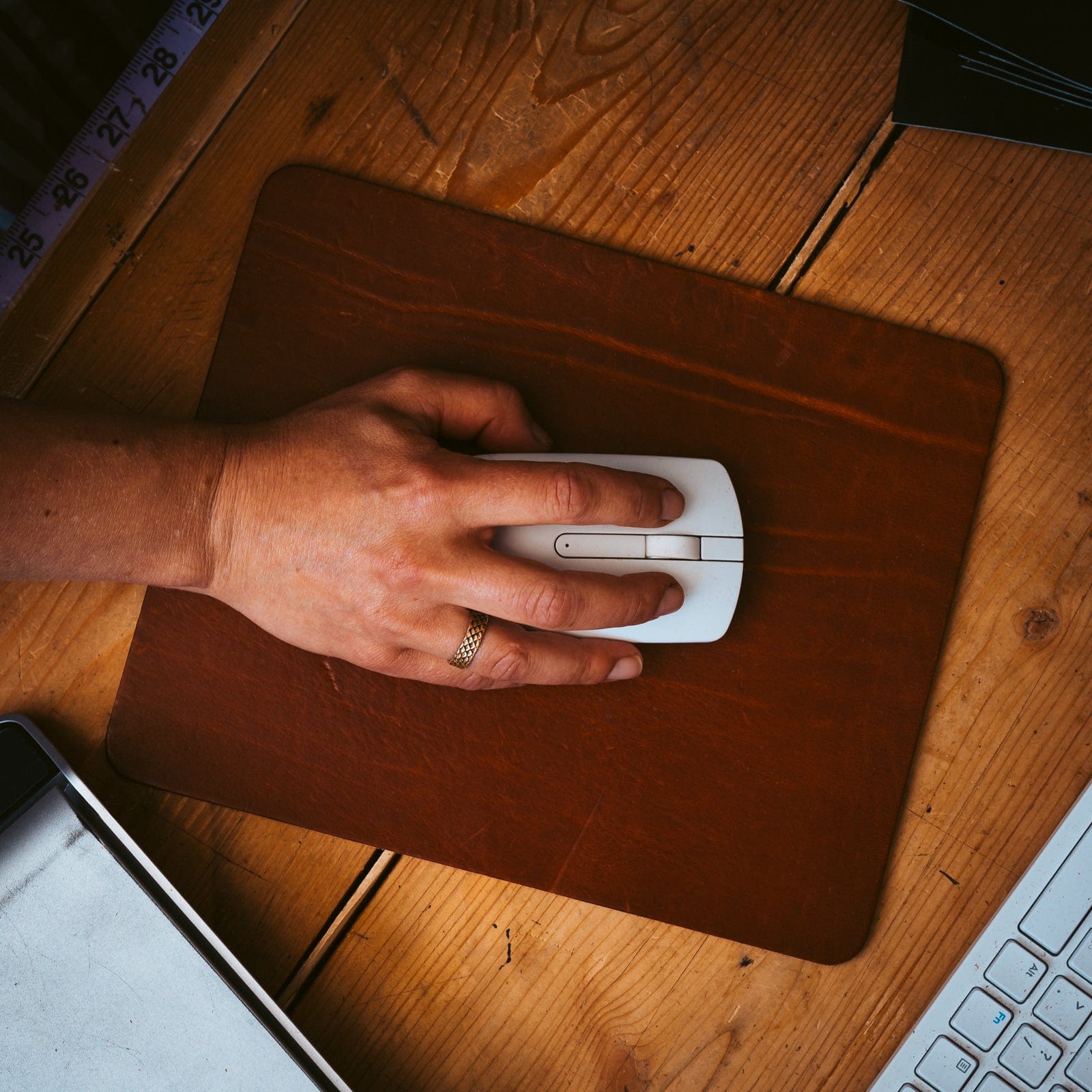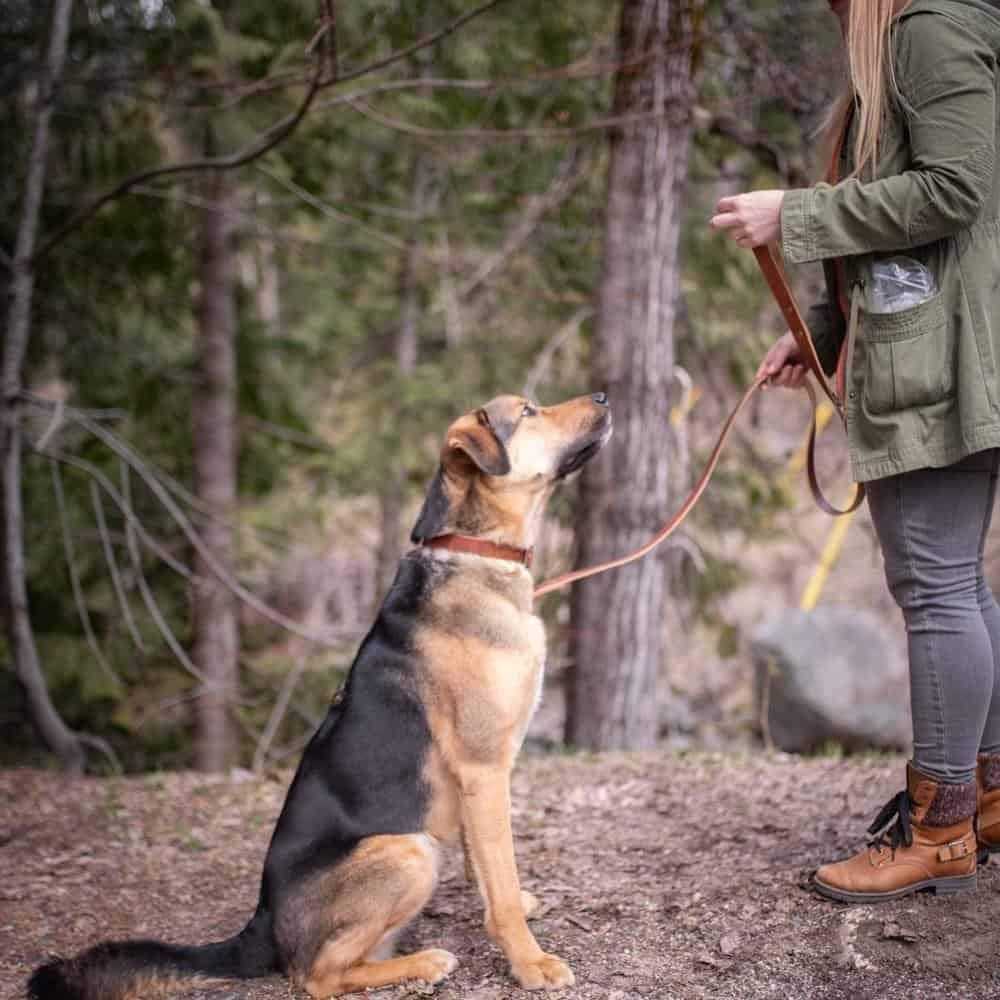Updated November 29,2024
Lost Wallet? Here's What to Do
Losing a wallet can be a distressing experience, leaving you feeling overwhelmed and anxious about the potential loss of important items like loyalty cards, your driver's license, credit cards, a debit card, and cash. But don't worry; you're not alone in this situation.
If you find yourself in this predicament, there are steps you can take to protect your information, recover crucial documents, and potentially find your lost wallet.
Table of Contents
Summary
Losing a wallet can be stressful, but taking immediate action can minimize potential risks.
Start by retracing your steps and using a wallet tracker if available.
Monitor your bank and credit card accounts for unauthorized transactions and alert your bank to cancel or freeze your debit cards.
Contact your credit card issuers to cancel your cards and prevent fraud. To protect against identity theft, consider freezing your credit file with the major credit bureaus.
File a police report to document the loss and replace important documents like your driver's license.
Finally, take preventive measures to safeguard your wallet against future losses.

Start by Retracing your steps
It's natural to panic once you realize that your wallet isn't where it usually is, whether in your front pocket, desk drawer, bag, or coat pocket.
However, giving yourself enough time to search for it is crucial.
A good starting point would be asking yourself questions like:
Where did I last see my wallet?
What was I wearing when I last had my wallet?
What was I doing when I last had the wallet?
Retracing your steps will help you save a lot of time and avoid unnecessary measures like freezing your credit.
Ryan Cicchelli, founder of Generations Insurance & Financial Services in Cadillac, Michigan, shares his perspective concerning this matter:
"The logical knee-jerk reaction here is to put an immediate stop to any possibility of money being liberated from your accounts as soon as possible. People who start here are not wrong, necessarily, but I've heard stories of people canceling every card in their wallet only to find it in their other pants' pocket the next day."
True to this, you may have inadvertently slipped your wallet into a pair of pants that's now neatly folded in your closet.
So, be sure to thoroughly check all possible areas where your wallet might be.
Remove your seat cushions to check if it slipped inside. Search your car to ensure it doesn't fall on the floor.
And if you happen to have a tracking device, knowing your wallet's whereabouts becomes even easier.

After my own near-miss, I decided to invest in an Apple AirTag, which I've securely attached to my wallet. It effortlessly connects to my iPhone via Bluetooth, using a UI chip.
If my wallet goes missing, I can quickly locate it by opening the FindMy app and checking the “Connected Items” tab. My wallet's current location will remain displayed on my device as long as it's within 800 feet
While it may seem like a hefty investment, an AirTag can be a lifesaver for your wallet. In case you lose it, you can always recover it quickly.
I'd highly recommend you to purchase Apple AirTags to enhance your wallet's safety.
They're not only water-resistant but also compatible with any iOS device that has a U1 Chip, and boast an incredible battery life.
And thanks to their separation alert feature, you'll receive a notification on your phone in case you accidentally leave your wallet far behind.
To keep your AirTag safely nestled in your wallet, consider the Popov Leather AirTag Cases.
Using the case's secure solid brass clip, you can easily slide a case into your wallet or hook it into your Biker Wallet or Long Wallet.
Immediate Actions: When your wallet is truly lost or stolen
Monitor Your Accounts
If you’ve lost your wallet, it’s essential to monitor your bank and credit card accounts for suspicious activity.
Check your online banking and credit card statements regularly to spot unauthorized transactions. Setting up alerts on your accounts can also be incredibly helpful.
These alerts will notify you of any unusual activity, allowing you to catch potential identity theft or credit card fraud early on.
By staying vigilant, you can protect your personal finances and minimize any potential damage.
Alert Your Bank to Cancel or Freeze Your Debit Cards
You can’t seem to find your wallet, even after searching all the likely places.
At this point, you can be fairly certain that your wallet is gone.
Now, it’s time to protect yourself from potential financial and identity theft risks. Contact your bank and inform them of your situation right away. Contacting your credit card company is crucial to canceling any unauthorized charges and protecting against potential fraud.
There are multiple compelling reasons why I recommend alerting your bank in the event of a wallet loss:
Prevent unauthorized transactions: You can request the bank to block your debit card to prevent unauthorized transactions immediately.
Protect your bank accounts: If your wallet has your bank account or routing number, the bank will help to prevent unauthorized withdrawals or transfers from your bank account and monitor any suspicious activity.
Dispute unauthorized charges: Most banks have policies that protect you from liability from fraudulent transactions. But to enjoy these protections, you must alert the bank of the loss in good time.
Remember to update your auto-pay accounts with your new card details to avoid missed payments and potential negative impacts on your credit score.
Canceling your cards will permanently deactivate them and your bank will issue you a replacement card that has a new number.
To contact your bank, simply log into the bank’s website. You should find a number that's specifically used for reporting stolen or lost cards.

Below are the numbers for some of the top banks to report your lost card:
Bank of America: 1-800-432-1000
JP Morgan Chase: 1-800-935-9935
Citibank: 1-800-950-5114
Wells Fargo: 1-800-869-3557
PNC Bank: 1-888-762-2265
Royal Bank of Canada (RBC): 1-800-769-2512
Toronto-Dominion Bank (TD Bank): 1-866-222-3456
Bank of Montreal (BMO): 1-800-361-3361
CIBC (Canadian Imperial Bank of Commerce): 1-800-663-4575
Oftentimes, it can be frustrating to cancel your credit or debit cards only to find your wallet later.
That's why some banks allow you to temporarily lock your cards and then unlock them when you recover your lost wallet.
Usually, you don’t need a bank representative to make this happen.
Most banks, including Bank of America, Chase, Citibank, RBC, TD, and CIBC, allow you to use their banking applications or online banking portals.
Inform Your Credit Card Issuer to Cancel Your Credit Card
Hackers often “validate” stolen credit card numbers by initially making small purchases, a practice commonly called carding.
To prevent any unauthorized transactions, promptly inform your credit card issuer of your loss. Contacting credit card issuers quickly can help minimize personal liability for unauthorized charges and lessen identity theft risk.
This proactive step will ensure that you won't be held responsible even if a thief attempts to make any purchases.

Below are the contacts for some of the major credit card companies in the US and Canada:
Visa: 1-800-847-2911
Mastercard: 1-800-627-8372
Discover: 1-800-347-2683
American Express: 1-800-528-4800
BMO: 1-800-361-3361
CIBC: 1-800-663-4575
RBC: 1-800-769-2512
It’s best to report any missing cards as soon as possible. With debit cards, provided you report the loss within two business days , you won't be responsible for any funds used during this time.
However, after this time, you may have to pay for up to $50 in fraudulent purchases, which will increase to $500 if you wait 60 days .
Credit card issuers can charge up to $50 for fraudulent purchases, but you most likely won't be charged a penny if you act swiftly.
Freeze Your Credit
As the name suggests, a credit freeze is a powerful safeguard, stopping anyone from using your credit.
This implies that nobody, including yourself , can secure credit approvals under your account until you choose to lift the freeze.
When it comes to freezing your credit, please note that each credit bureau has its own process.
So if you want to do the freezing with all three bureaus, you'll need to follow each procedure separately:
Equifax: Visit Equifax's security freeze page and click "PLACE A SECURITY FREEZE" to start.
Experian: Create an account on Experian's credit freeze page , then proceed to freeze your account.
TransUnion: Like the other two bureaus, you should go to TransUnion's credit freeze page to create an account before freezing your credit.
You can also contact the three bureaus to place a Potential Fraud Alert on your credit file at no extra cost. This will help to prevent scammers from hurting your score or opening new accounts in your name.
Below are their contact details:
Equifax: 1-800-525-6285
Experian: 1-888-397-3742
TransUnion: 1-800-680-7289
However, as I mentioned earlier, you won't be able to access your credit report or apply for loans until you unfreeze your account.
Luckily, the unfreezing process is pretty straightforward; it will take only a few minutes and can be done online.
To begin with, you'll need to contact each of the three credit bureaus individually. Then, you can choose your preferred method for unfreezing your credit.
This can be done online through the bureau's portal, by calling a phone number dedicated for freezing, or by submitting your request via mail, although this last option often takes the longest.
When unfreezing your credit, you'll need to provide personal information such as your full name, date of birth, social security number, and the PIN or password you used when you froze your credit.
You may also have to specify how long you want your credit report to remain unfrozen. This could be from a single day to an indefinite unfreeze period.
Contact Your Local Department of Motor Vehicles (DMV)

Alerting your local Department of Motor Vehicles (DMV) - or its Canadian equivalent, the Ministry of Transportation (MTO) - after losing your wallet can help prevent identity fraud and protect your driving record. Using your license for traffic violations can have negative effects.
Regularly reviewing your credit reports is crucial to catch unusual transactions or inquiries and protect your identity, especially after incidents like the loss or theft of a wallet.
Keep in mind that each state demands different requirements to prove your identity.
Therefore, before applying for a new driver's license, go to your local DMV's website and check the documents required to establish your identity.
Furthermore, you’ll need to issue proof of your residency, so make sure you have documents such as your birth certificate, Social Security number, and utility bills, such as a recent electricity bill or cell phone bill, all bearing your name and address.
Remember that the DMV office will charge a small fee to replace your license. This fee varies from state to state, though it typically ranges from $10 to $30, with some states charging more or less.
To get the most accurate information on replacing your license, visit the official website of your DMV or contact your local DMV office directly.
Replace Your Driver’s License and Other Documents

Losing your wallet often means losing important documents like your driver's license. If your driver’s license or other critical documents were in your lost or stolen wallet, you’ll need to replace them as soon as possible.
Contact your state’s Department of Motor Vehicles (DMV) to report your lost driver's license and apply for a replacement. Don’t forget to replace other essential documents such as your health insurance card, auto insurance card, or social security card. Acting quickly will help you avoid any complications that might arise from not having these documents.
File a Police Report
Even if you don’t suspect that your lost wallet is stolen, you should visit your local police department and file a police report to indicate that your wallet is missing. This is especially important if your driver's license is in the wallet, as replacing a driver's license promptly can help prevent identity theft.
Here's why:
A police report will be useful when filing an insurance claim for your valuables that were lost along with your wallet. It acts as official documentation of the event.
With a police report, you can prove that you're a victim of crime in case your lost wallet is used for illegal activities like financial scams, fraud, or identity theft.
A report file with your information will help recover your wallet if someone finds it and brings it to the police.
After filing a police report, you’ll receive a case number and documentation to show your bank or creditors as proof in case you experience fraud.
To obtain a replacement driver's license, contact the Department of Motor Vehicles (DMV) to report the loss. You will need to provide proof of identity and residency to get a new license.
Failure to file a police report may cost you a lot since your creditors may not believe that you're a victim of fraud.
And sometimes, creditors request for an Identity Theft Affidavit from the Federal Trade Commission (FTC), which you cannot be eligible for without a police report.
Don’t call 911 if you lose your wallet. 911 is reserved for emergencies requiring immediate intervention from law enforcement, medical personnel, or the fire department.
Instead, call your local police's non-emergency number (which you can find on their official website) or visit the station in person to file a report.
Protect Your Identity
Set Up Fraud Alerts
To safeguard your identity, it’s wise to set up fraud alerts with the major credit bureaus—Equifax, Experian, and TransUnion.
A fraud alert notifies lenders and creditors to take extra steps to verify your identity before opening new accounts or changing existing ones.
You can set up a fraud alert online or by calling the credit bureaus directly. Additionally, consider placing a credit freeze on your credit file.
This will prevent anyone from accessing your credit report without your permission, offering an extra layer of security against identity theft. Taking these steps can significantly reduce the risk of unauthorized access to your personal information.
Protect Your Wallet Against Any Future Loss
Losing a wallet and all its content can be frustrating, time-consuming, and potentially threaten your financial security.
Luckily, you can take precautions now to reduce the chances of it occurring again. And at the very least, you'll manage to rebound quicker.
Consider taking the following steps before leaving home with your beloved wallet:
Only Carry Essentials
Only have the items that you really need and frequently use in your wallet.
If you rarely use important identifying documents like your birth certificate, passport, and Social Security card, you can leave them at home.
Consider a Secure Wallet (One with a chain)
Invest in a secure wallet such as the Popov Leather Biker Wallet or Long Wallet.
Both wallets have a solid chain that can be attached to your belt or clothing. This makes it difficult to lose your wallet or for someone to snatch it.
Photocopy Key Contents
For security purposes, make copies of important content in your wallet, such as your insurance cards, IDs, credit cards, and new replacement cards.
Keep these copies in a secure place at home so you can have a record of everything in your wallet in case you lose or misplace it.
Occasionally Empty Your Wallet
Periodically (at least once a month) clean out your wallet to eliminate items you don't need anymore. This will reduce clutter and minimize the potential loss if your wallet goes missing.
Use an RFID-Blocking Wallet
Invest in an RFID-blocking card, such as the Wallet Gauntlet, to safeguard your credit card and personal data against electronic theft.
The card blocks signals that hackers might use to scan your cards without physically stealing your wallet.
Track Your Wallet
I mentioned my Apple AirTag, but there are all types of trackers on the market, from standalone products like Cube and Tile to Samsung's device-connected trackers . Research diligently to find the best one for your needs and budget.
A wallet loss can be a huge inconvenience. But as long as you act swiftly, you can prevent major financial losses and protect your personal information from potential identity theft.
By taking one step at a time, your life will return to normal before you know it.
Article by Ryan Popoff
Ryan Popoff has been the creative mind behind Popov Leather wallets, belts, watch bands, and journals since 2013. With a Bachelor's Degree in Fine Arts, my leatherworking journey began at home. I wanted to create a simple leather wallet that could fit into my front pocket, and—to my delight—it was a hit with family and friends. Hopefully, you love our honest, quality leather goods, too! Reach out with questions.














